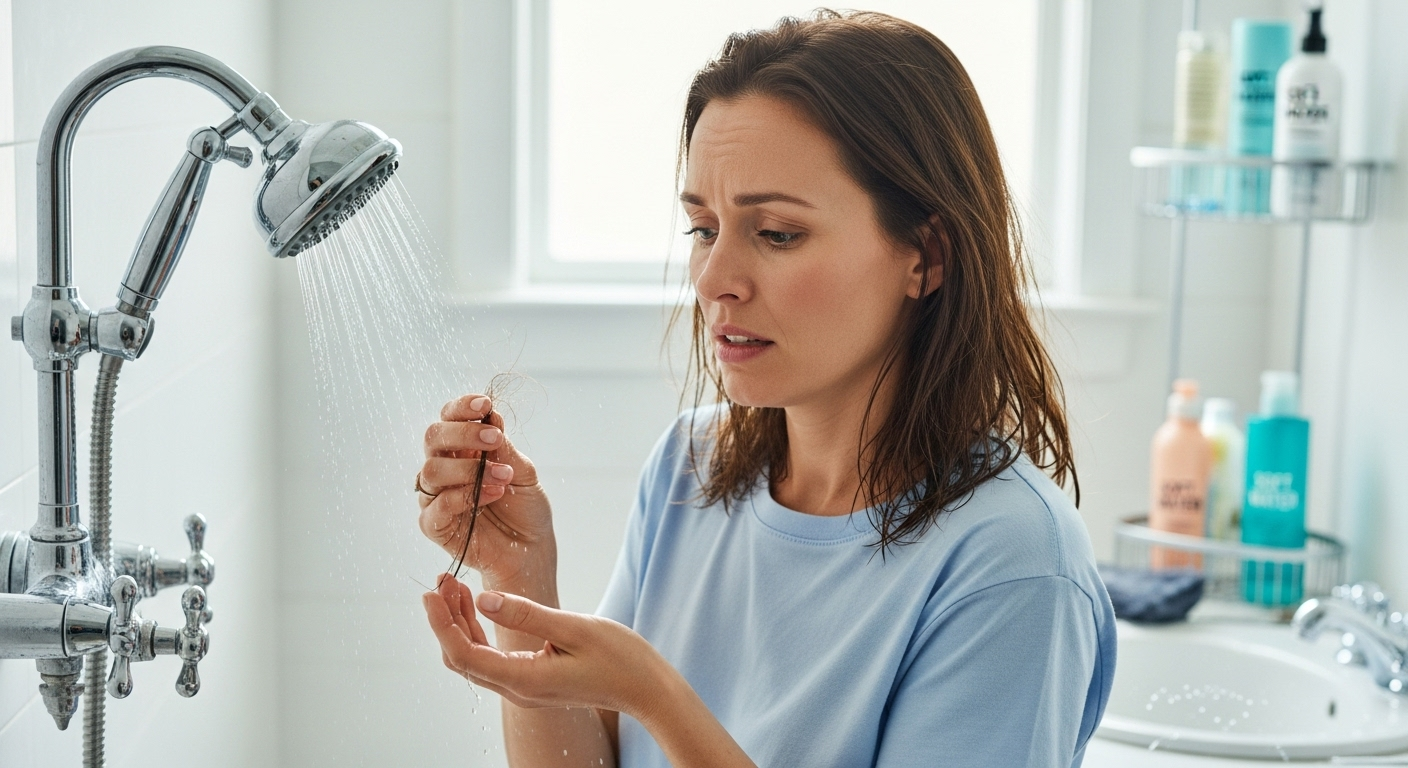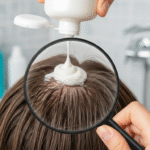Can soft water cause hair loss? If you've recently switched to soft water and noticed changes in your hair, you might be concerned. While soft water is often praised for its gentleness, some people worry about its potential impact on hair health. This article explores whether soft water can contribute to hair loss, explains its …
Can soft water cause hair loss? If you’ve recently switched to soft water and noticed changes in your hair, you might be concerned. While soft water is often praised for its gentleness, some people worry about its potential impact on hair health.
This article explores whether soft water can contribute to hair loss, explains its effects on hair and scalp, and offers practical tips to protect your hair. By the end, you’ll have the knowledge you need to make informed decisions about caring for your hair in soft water environments.
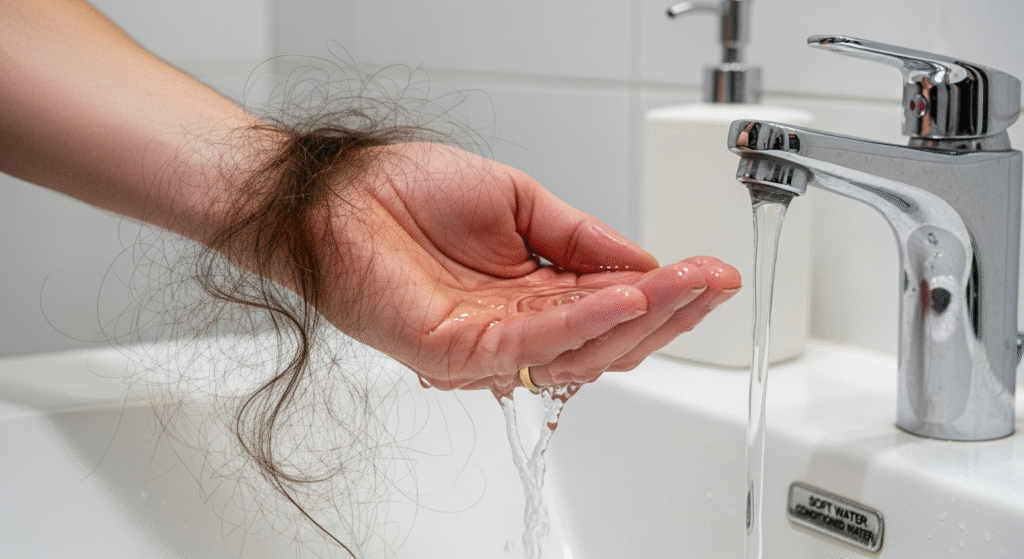
What Is Soft Water?
Soft water is water that has been treated to remove minerals such as calcium and magnesium. These minerals are responsible for water hardness, and softening the water involves an ion-exchange process where hard minerals are replaced with sodium ions.
- Characteristics of Soft Water:
- Lathers Soap More Effectively: Soft water creates a richer lather, making it easier to wash hair and skin.
- Smoother Hair and Skin: Without mineral deposits, soft water often leaves hair feeling softer and smoother.
- Reduced Mineral Buildup: Soft water prevents mineral deposits from building up in your plumbing and appliances, which is often seen in hard water areas.
However, despite these benefits, some individuals have reported changes in their hair’s texture or appearance after switching to soft water.
How Soft Water Affects Hair
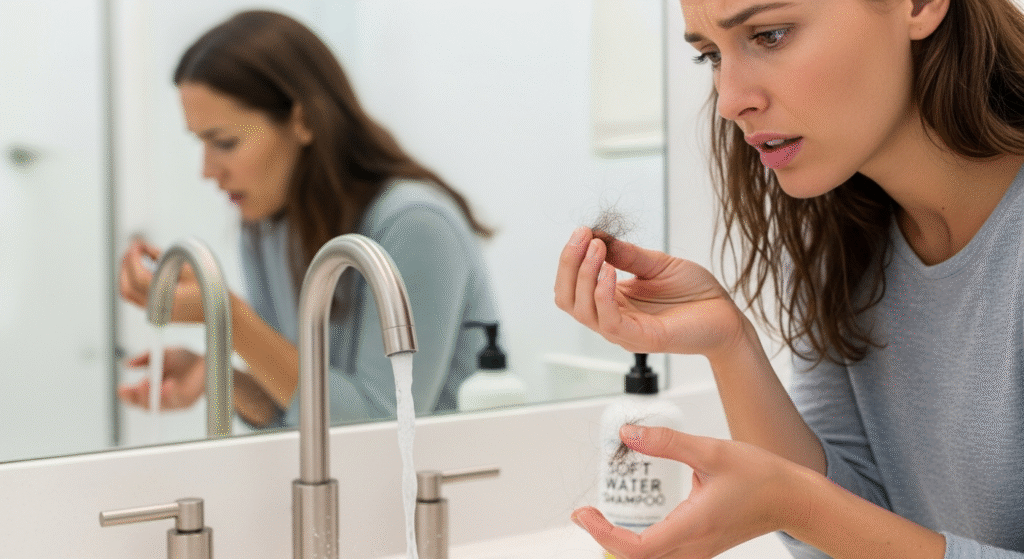
Soft water’s effects on hair are subtle but significant, particularly for people with different hair types. Here’s a closer look at how soft water may impact your hair:
- Moisture Retention: Soft water can enhance your hair’s ability to retain moisture. With less mineral buildup on the scalp, hair feels softer, shinier, and smoother.
- Product Residue: One downside of soft water is that it may not rinse hair products as effectively. Without minerals to help break down and rinse off hair products, such as shampoos, conditioners, and styling products, some residue can remain on the scalp and hair, leading to buildup over time. This can make hair feel limp or weighed down, and may lead to clogged hair follicles.
- Perceived Thinning: Some people report that their hair appears flatter or less voluminous after switching to soft water. This is likely because the smoothness of the hair cuticle makes it look less textured and less voluminous.
Common Concerns and Misconceptions
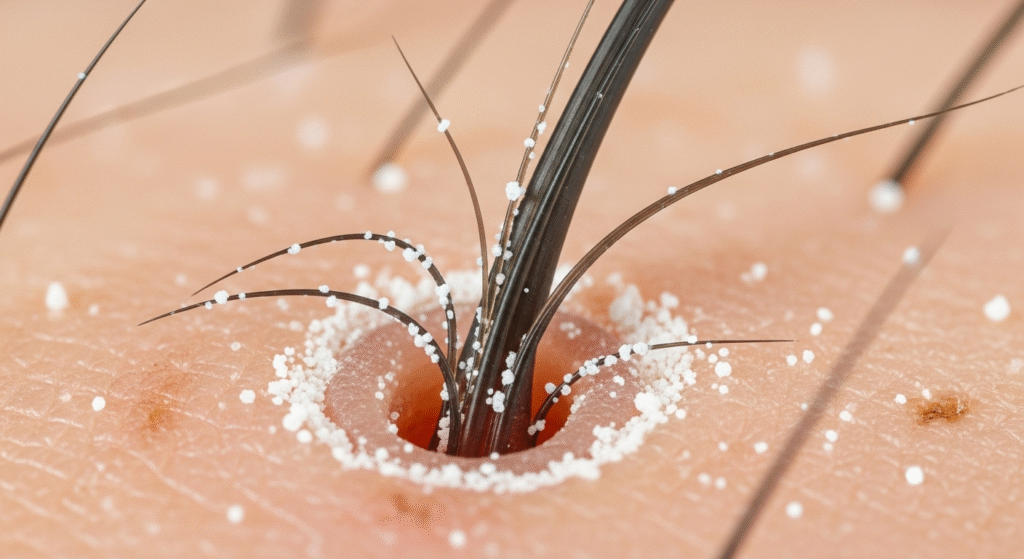
There are some myths surrounding soft water and its potential to cause hair loss. It’s important to separate fact from fiction:
- Hair Loss vs. Hair Thinning: Soft water doesn’t directly cause hair loss. However, the buildup of hair care products due to ineffective rinsing, combined with lack of proper scalp care, may cause hair thinning or shedding.
- Scalp Health: Soft water’s gentleness might be one of the reasons people think it causes hair loss. Unlike hard water, which may dry out the scalp, soft water can leave a natural layer of oil on the scalp, which may not be properly cleansed. If oil and product buildup aren’t removed regularly, clogged follicles can lead to thinning or breakage.
Tips for Maintaining Healthy Hair with Soft Water
If you live in an area with soft water, here are some practical tips to ensure your hair remains healthy:
- Regular Cleansing: Use a clarifying shampoo every couple of weeks to remove any product buildup that soft water might leave behind. These shampoos help eliminate excess residues and keep the scalp clean.
- Scalp Care: Gently massage your scalp during washing to ensure the removal of oil and product buildup. Regular scalp care promotes circulation and helps keep hair follicles healthy.
- Choose the Right Products: When using soft water, choose lightweight hair products that are less likely to leave buildup. Opt for sulfate-free shampoos, which are less likely to leave residue behind.
- Hydration: Soft water helps retain moisture, but it’s essential to keep your hair hydrated. Use leave-in conditioners or moisture-rich hair masks to keep hair soft and healthy.
When to Consult a Specialist: Can Soft Water Cause Hair Loss
If you notice any of the following symptoms, it may be time to consult with a specialist:
- Persistent Hair Shedding: If you notice increased hair shedding or thinning despite following hair care recommendations, a dermatologist or trichologist can assess your hair and scalp health.
- Scalp Irritation: If you experience scalp itching, flaking, or redness, this may indicate a reaction to product buildup or a scalp condition that needs professional attention.
- Noticing Bald Spots: If you develop bald spots or significant thinning, it’s important to consult a specialist to rule out other underlying causes like hormonal imbalances or scalp infections.
FAQs
Can soft water cause permanent hair loss?
No, soft water does not directly cause permanent hair loss. However, improper hair care routines can lead to thinning or breakage.
Is soft water better for my hair than hard water?
Soft water is gentler on your hair and skin, reducing mineral buildup. However, it can leave product residue if not rinsed properly, so regular cleansing is important.
How often should I use clarifying shampoo with soft water?
Use clarifying shampoo once every 2-4 weeks to remove buildup and maintain a clean scalp.
Does soft water make hair feel thinner?
Some people report that soft water makes their hair appear less voluminous due to smoother cuticles. This is not a result of hair loss but a change in texture.
What’s the best way to prevent hair loss with soft water?
Ensure proper rinsing, avoid product buildup, and maintain a consistent hair care routine with appropriate products for your hair type.
Conclusion
Soft water, in and of itself, does not cause hair loss. However, its effects on your hair care routine—such as potential product buildup—can lead to thinning or breakage. By taking steps to maintain a clean, hydrated scalp and adjusting your hair care regimen, you can enjoy the benefits of soft water without compromising your hair health.
If you’re noticing changes in your hair health or have concerns about soft water, book a consultation with Dr. Uzma Irfan, an ISHRS-certified surgeon in Islamabad today,. They can provide personalized advice to help you manage your hair care routine and keep your hair healthy.

